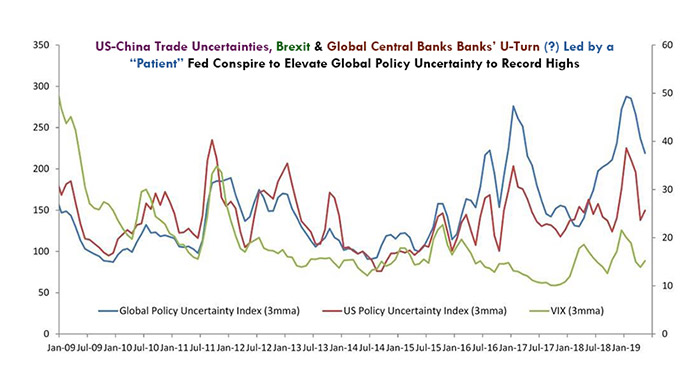Gauging the impact of COVID-19 on inflation
June 2020
Hidetoshi Honda
Senior Strategist, European Treasury,
Mizuho Bank, Ltd.
There’s a real and serious risk that inflation will rise following the COVID-19 pandemic.
The global economy is going to slow down following the pandemic’s almost incomprehensible impact on global economies. This is a well-accepted fact. But what does this mean for inflation?
For 20 years, inflation models have been biased towards the demand-side as effective economies and globalisation has made supply less of a factor (with the notable exception of the oil price). Central banks have focused on stimulating demand to drive inflation and economic growth. With a global recession looming, the wide assumption is that lower demand will mean reduced inflation.
However, these are unusual times. Basic items such as food, clothing and communication will remain in demand, supported by government relief packages. Luxury items like entertainment and travel will likely be responsible for a much lower percentage of individuals’ spending. The Consumer Price Index (CPI) will be adjusted accordingly, weighted towards basic items. Theoretically, this will lead to continued high levels of demand, and higher inflation.
At the same time, supply capacity will inevitably decrease because of COVID- 19, causing prices to go up across the board, including for basic items, and leading to a corresponding increase in inflation.
The post-COVID-19 impact on supply is likely to take many forms, which cumulatively will have a direct impact on the cost of goods. For example:
- Supply chains will be disrupted by reduced globalisation and slower distribution of goods. This may be exacerbated by countries and industries attempting to reduce their reliance on China and therefore seeking new manufactures and suppliers.
- This latest disruption has shown the risk in “just in time” supply chains, requiring increased inventories with the accompanying increased costs.
- Capacity of businesses, airplanes, restaurants, theatres, sports venues, gyms etc will all be reduced to accommodate social distancing when they resume operations, but the cost of running these will remain stable or even increase. As a result, costs for users will go up.
- Insurance premiums are likely to be hiked as insurance companies look to recover following high volume of payouts (life insurance) and large-scale payouts (event insurance). Risk models, and therefore pricing, may also be adapted to take current events into account
- The cost and effort in finding and procuring a vaccine for COVID-19 is easily going to go into the billions, if not trillions, of dollars. Pharmaceutical companies, even with government support, are likely to charge large fees to recoup their investments. People are likely to be ready to accept these higher prices for the potential vaccine as well as other items to secure their safety, such as PPE. High demand will not therefore lead to any price reductions.
The current equity markets boom can be seen as a signal of cash depreciation rather than asset appreciation. With central bank and government support, equity markets have recovered but in reality, this is dollar depreciation, which can be read as inflation by definition.
Importantly, inflation may not only be a product of demand/supply dynamism. The erosion of the trust in money and the governments that guarantee its value may also trigger inflation. Central banks are “printing” money so there’s little likelihood of governments being able to claw it back via tax revenues. In previous times of economic crisis, this has then seen cash being turned into physical goods such as gold and property, – leading to further price increases. We’ve seen this before - in post WW1 Germany, medieval feudalism in Japan, modern day Brazil and many others. And with COVID- 19, victory doesn’t bring long term economic benefits or new opportunities.
Dollar Depreciation, rather than Asset Appreciation

Right now, prudent investors should be thinking about the impact of (global) inflation. Cash and deposits are likely to see their value wiped out by inflation, making so-called “inflation assets” far more attractive like shares, gold and property. Individuals (and corporates) should also be ready for tax hikes, Capital Gains Tax, excise tax and even wealth tax may all be introduced or increased, although of course, higher tax is also an obvious source of inflation.
Disclaimer: This publication has been prepared by Mizuho Bank, Ltd. (“Mizuho”) and represents the views of the author. It has not been prepared by an independent research department and it has not been prepared in accordance with legal requirements in any country or jurisdiction designed to promote the independence of investment research and is not subject to any prohibition on dealing ahead of the dissemination of investment research.
More on our disclaimer.